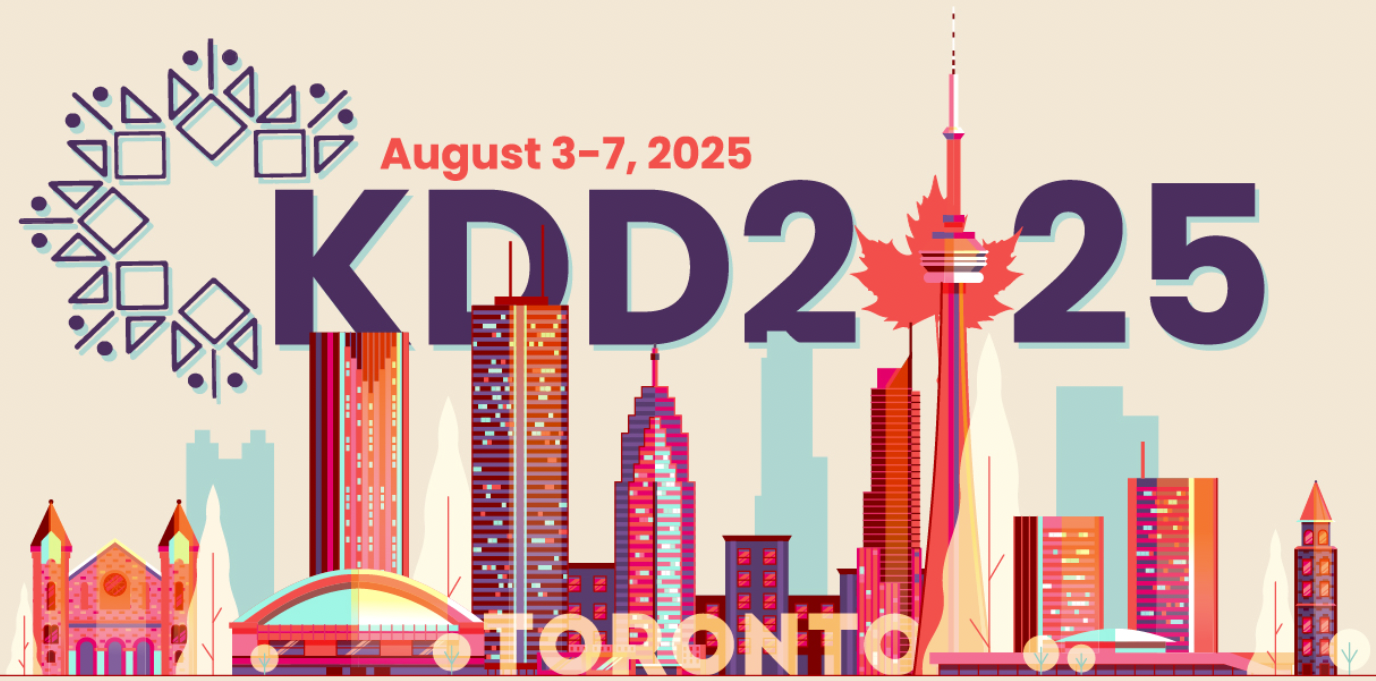This post is a translation and repost from an original article by Sakura on Zhihu (original link).
 Receiving rejection from top-tier conferences such as CVPR is an experience shared by nearly every researcher in our field. While each rejection feels uniquely personal, the frustration, hope, anxiety, and eventual disappointment described in this article resonate deeply within our research community. By sharing Sakura's experience, I hope to offer comfort to others facing similar moments, reminding everyone that these setbacks, though painful, are common milestones on our academic journeys.
Receiving rejection from top-tier conferences such as CVPR is an experience shared by nearly every researcher in our field. While each rejection feels uniquely personal, the frustration, hope, anxiety, and eventual disappointment described in this article resonate deeply within our research community. By sharing Sakura's experience, I hope to offer comfort to others facing similar moments, reminding everyone that these setbacks, though painful, are common milestones on our academic journeys.

Initially, I wasn’t planning to write this blog post. However, I realized many researchers might resonate deeply with my experience. If reading this brings you some comfort or connection, then sharing this experience was worthwhile.
Receiving a rejection from CVPR is emotionally complicated. Honestly, when I first submitted this paper, I didn’t have high expectations. But then my senior lab-mate said confidently, "CVPR acceptance should be pretty safe this time. Once accepted, you can expand it for TPAMI and even consider applying for talent programs at top tech companies." That encouragement filled me with excitement, pride, and hope.
When the initial scores came out (scored 3, 3 and 4), I checked with others around me and found mine seemed to be among the highest (or maybe I just asked fewer people!). The email arrived at midnight, waking me from shallow sleep. Immediately, I jumped into group chats, exchanging opinions about reviewer comments. My senior lab-mate, always having a different sleep pattern, quickly drafted a rebuttal. Unable to fall back asleep, I started drafting detailed rebuttal notes, outlining experiments needed and responses for each point raised by reviewers. After an exhausting night, I briefly rested before diving back into work.
We had three reviewers: one gave four points (mostly minor comments on typos and figures), and two others gave three points each. One asked for additional ablation studies, and the other misunderstood key aspects of our paper, requiring further clarification and experiments.
Rebuttal coincided with the Lunar New Year holidays. To save precious rebuttal time, I canceled planned journey home, opting instead for expensive direct flights. The entire festive period was consumed by many discussions with my senior lab-mate and advisor, carefully revising each rebuttal response multiple times. We carefully and politely addressed the factual errors made by the second reviewer, offering gentle corrections and gracious statements (somewhat like politely negotiating after an argument with your significant other!).
After submitting the rebuttal, the reviewer modification period began. I wasn't expecting significant score changes, except perhaps from the second reviewer whose concerns we addressed extensively. I anxiously refreshed OpenReview daily. Eventually, the second reviewer indeed modified their review, fueling my optimism.
The wait afterward felt endless. As the announcement date (February 26th) approached, anxiety peaked. I stayed awake until 3 a.m., refreshing emails repeatedly. Eventually, fatigue overtook me, but every hour I'd wake again, checking for updates. The official announcement was delayed without clear communication, adding to the frustration.
The results finally appeared around 4 a.m. on February 27th. Seeing "Reject" on OpenReview crushed me  . It was extremely difficult to accept this outcome, especially given the high initial hopes and reassurance from everyone around me. I immediately called my senior lab-mate, who shared my disbelief but offered comforting words: "Take it easy, treat yourself to something good, and adjust your mindset."
. It was extremely difficult to accept this outcome, especially given the high initial hopes and reassurance from everyone around me. I immediately called my senior lab-mate, who shared my disbelief but offered comforting words: "Take it easy, treat yourself to something good, and adjust your mindset."
It took an entire day to process the rejection, talking it through with family, my girlfriend, and colleagues. Eventually, acceptance set in. However, I still eagerly awaited the meta-review for clarity, hoping at least for constructive insights.
Sadly, the meta-review shifted my feelings from disappointment to utter frustration:
Reviewer 1: "The rebuttal has solved some concerns about experiments. I also keep the original rating."
Reviewer 2: "Thanks for the reply. The authors have addressed my concerns. Therefore, I maintain my score."
Reviewer 3: "I appreciate the authors' feedback, which addressed my major concerns. As such, I prefer to maintain my original rating."
The Area Chair concluded:
"Three reviewers evaluated this paper, two borderline and one positive recommendation. All reviewers agreed that experimental results were insufficient or less impressive compared to existing works. Despite addressing concerns clearly in the rebuttal, reviewers did not actively discuss or adjust their scores."
Reading this was incredibly frustrating: reviewers acknowledged our efforts but simply chose not to reconsider their decisions?! 
My experience seems common among researchers. In conclusion, I'd like to share an encouraging quote my senior lab-mate gave me:
"If this place doesn’t appreciate your work, another surely will!"


 ️ Be cautious with rebuttals
️ Be cautious with rebuttals Community Polls & Stats
Community Polls & Stats Looking Ahead
Looking Ahead



 Purpose
Purpose How It Works
How It Works Only unverified (but registered) users can post in this category: make sure to skip filling your email during registration.
Only unverified (but registered) users can post in this category: make sure to skip filling your email during registration. You can edit or delete your post anytime
You can edit or delete your post anytime Use a username that doesn’t reveal your identity
Use a username that doesn’t reveal your identity Share the link to your anonymous supplementary materials post/topic
Share the link to your anonymous supplementary materials post/topic ️ Stay Anonymous
️ Stay Anonymous Example Use Case
Example Use Case Pro Tip
Pro Tip Start Posting
Start Posting
 ️ Environmental Impact: Transatlantic flights carry a heavy carbon footprint.
️ Environmental Impact: Transatlantic flights carry a heavy carbon footprint. Family Considerations: Long travels can be difficult for researchers with children.
Family Considerations: Long travels can be difficult for researchers with children. US Entry Concerns: Visa policies and border control have become increasingly strict and unpredictable.
US Entry Concerns: Visa policies and border control have become increasingly strict and unpredictable. Conference Scale: NeurIPS has grown large — some argue, too large for meaningful in-person interaction.
Conference Scale: NeurIPS has grown large — some argue, too large for meaningful in-person interaction. Implications for Peer Review & Conference Design
Implications for Peer Review & Conference Design

 Cap reviewer workloads?
Cap reviewer workloads? Wish all best of luck!
Wish all best of luck! 

 Key Findings:
Key Findings: Receiving rejection from top-tier conferences such as CVPR is an experience shared by nearly every researcher in our field. While each rejection feels uniquely personal, the frustration, hope, anxiety, and eventual disappointment described in this article resonate deeply within our research community. By sharing Sakura's experience, I hope to offer comfort to others facing similar moments, reminding everyone that these setbacks, though painful, are common milestones on our academic journeys.
Receiving rejection from top-tier conferences such as CVPR is an experience shared by nearly every researcher in our field. While each rejection feels uniquely personal, the frustration, hope, anxiety, and eventual disappointment described in this article resonate deeply within our research community. By sharing Sakura's experience, I hope to offer comfort to others facing similar moments, reminding everyone that these setbacks, though painful, are common milestones on our academic journeys.
 . It was extremely difficult to accept this outcome, especially given the high initial hopes and reassurance from everyone around me. I immediately called my senior lab-mate, who shared my disbelief but offered comforting words: "Take it easy, treat yourself to something good, and adjust your mindset."
. It was extremely difficult to accept this outcome, especially given the high initial hopes and reassurance from everyone around me. I immediately called my senior lab-mate, who shared my disbelief but offered comforting words: "Take it easy, treat yourself to something good, and adjust your mindset."

